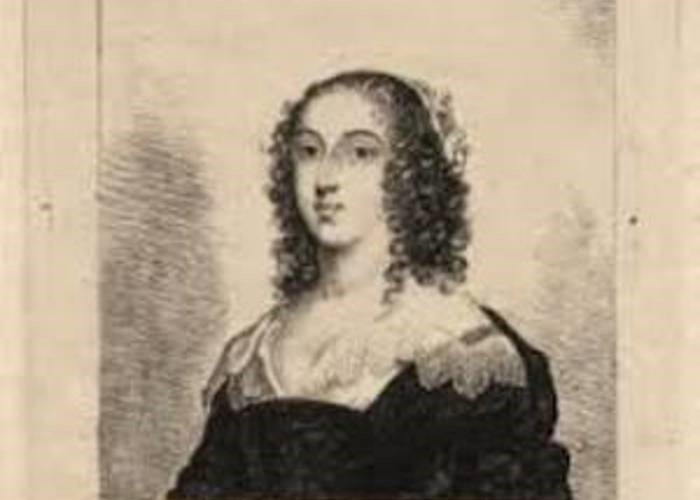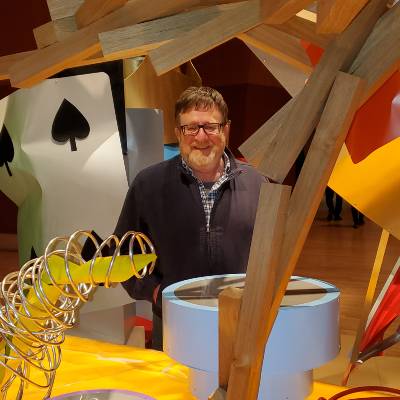
‘Twas whispered in Heaven, ’twas muttered in Hell,
And echo caught softly the sound as it fell:
In the confines of earth ’twas permitted to rest,
And the depth of the ocean its presence confessed;
‘Twas seen in the lightning, ’twas heard in the thunder,
‘Twill be found in the spheres when they’re riven asunder;
‘Twas given to man with his earliest breath,
It assists at his birth and attends him in death,
Presides o’er his happiness, honour, and health,
‘Tis the prop of his house and the end of his wealth;
It begins every hope, every wish it must bound,
With the husbandman toils, and with monarchs is crowned;
In the heaps of the miser ’tis hoarded with care,
But is sure to be lost in the prodigal heir;
Without it the soldier and sailor may roam,
But woe to the wretch who expels it from home;
In the whispers of conscience it there will be found,
Nor e’er in the whirlwind of passion be drowned;
It softens the heart, and though deaf to the ear,
It will make it acutely and instantly hear;
But in shades let it rest, like an elegant flower,
Oh! breathe on it softly, it dies in an hour.
* * *
(1) Загадка
Он звучит в адском пекле, – не в райских садах;
В вулканическом пепле, в арктических льдах;
И в земле, – он в могилу навечно зарыт;
В толще мрачных глубин океана укрыт.
Его солнце скрывает, но явит луна,
Его носит, играя, морская волна,
Он есть в капле дождя, в родниковом ключе,
В каждой молнии блещет, и в каждом луче.
Начинается лето с него – круглый год;
Он всегда в авангарде лавины идёт.
Он в начале любви, в середине кольца,
И всегда впереди у любого лица!
Нет ни ласки, ни слёз без него. Он в мольбе;
И судьбы колесо его крутит в себе;
Он замешан в злодействе, в добре же – никак;
Он на месте всегда там, где правит кулак!
С ним орёл над ущельем парит в вышине;
Он в алмазе горит, в бриллианте – вдвойне!
Слышен он в глухоте, в слепоте разглядишь
Ты его, – но не там, где лишь темень да тишь…
Хоть тесна ему мысль, но просторны слова,
И разносит его по планете молва!
* * *
(2) Загадка
Он в аду обитает и в райском саду,
Никогда не растает в арктическом льду,
Глубоко в подземелье зарыт он давно;
И покоит его океанское дно.
Он всегда попадёт в никуда и везде –
Его видно легко, если знаете где.
Впереди его можно найти, позади,
Но всегда в середине он будет идти…
Начинается день им, кончается год;
Хоть из города он, но в деревне живёт;
С ним приходит добро, с ним бывает беда,
Он участник любого труда и суда.
Он в начале дороги, у дома в дверях,
У дворца на пороге, – но не в шалашах;
Не живёт без него ни мудрец, ни дурак,
И подлец без него невозможен никак.
Он скрывается в сердце, – хотя не печаль;
Он – частица души, и желудка деталь;
Он участвует в родах, в дыханье звучит,
Он – явленье природы, с ним дух говорит.
Правды нет без него. Его нет там где ложь.
И надежду ты с ним непременно найдёшь!

Catherine Maria Fanshawe was born at Shabden in Chipstead, Surrey, in 1765. She was the daughter of John Fanshawe (1738–1816), a Surrey squire, and his wife Penelope (née Dredge). Fanshawe’s father held a post in the household of King George III. After the father’s death in 1816, Fanshawe and her two sisters were co-heirs. They lived at 15 Berkeley Square, London, and at Midhurst House, Richmond, Surrey, but also visited Italy due to their poor health. Fanshawe wrote clever occasional verse after the Romantic school. Some of her poems were printed in publications by Joanna Baillie and Mary Russell Mitford in 1823 and 1859, then together in 1865 and 1876. Mitford described her as “admirable as a letter-writer, as a reader of Shakespeare, and as a designer in almost every style.” “…She mimics political voices she disagrees with.” The diary she kept has not been found. Her “Fragment in Imitation of Wordsworth” appears in the Oxford Book of Parodies (edited by John Gross). Walter Scott admired her poetry as “quite beautiful”. He also related that Catherine and her sisters were the first publishers of the Memoirs of Ann, Lady Fanshawe (1625–1680), which cover her life up to 1672 and were completed in 1676. These appeared in 1829.Fanshawe died after a long illness at Putney Heath, then in Surrey, on 17 April 1834. (From Wikipedia)

Simon Patlis grew up in the former Soviet Union (first in Tashkent, later in Kishinev.) Since moving to the US in 1991, he’s lived in San Diego, CA. Mathematician by education, he works as an IT consultant. He has been writing poetry since childhood and translates English and Russian poetry (English to Russian, Russian to English). He is the author of “Duda”, published in Nizhny Novgorod, Russia, in 2006. His work was published in “The Notebook. A Collection of Contemporary Russian Poetry in North America” (“Общая Тетрадь”, Moscow, 2007), as well as in other collections and almanacs of poetry published over the years in Russia and the US.
Launched in 2012, “Four Centuries” is an international electronic magazine of Russian poetry in translation.
“The Lingering Twilight” (“Сумерки”) is Marina Eskin’s fifth book of poems. In Russian.
A collection of moving, often funny vignettes about a childhood spent in the Soviet Union.
“Vivid picture of life behind the Iron Curtain.” —Booklist
“This unique book will serve to promote discussions of freedom.” —School Library Journal
A new collection of poems by Ian Probstein. (In Russian)
Young readers will love this delightful work of children’s verse by poet William Conelly, accompanied by Nadia Kossman’s imaginative, evocative illustrations.
A book of poems by Maria Galina, put together and completed exactly one day before the start of the Russian invasion of Ukraine. This is Galina’s seventh book of poems. With translations by Anna Halberstadt and Ainsley Morse.